+JMJ+
In this e-weekly:
- Lengthening the Life of your Fuel Pump (Helpful Hints for Life-Jesus icon)
- Keep up on the actions of the Pope and Vatican via simply daily e-mail (Website section-laptop icon)
- This Catholic Doctor Provides Care for 1 Million People in Sudan and South Sudan (Diocesan News and Beyond)
In this e-weekly:
- Lengthening the Life of your Fuel Pump (Helpful Hints for Life-Jesus icon)
- Keep up on the actions of the Pope and Vatican via simply daily e-mail (Website section-laptop icon)
- This Catholic Doctor Provides Care for 1 Million People in Sudan and South Sudan (Diocesan News and Beyond)
Catholic Good News
Receiving the Gospel, Serving God and Neighbor
Age of Reason to Receive Holy Communion
"Behold, I stand at the door and knock. If anyone hears my voice and opens the door,
I will enter his house and dine with him, and he with me." Revelation 3:20
Dear friends in Christ Jesus,
Canon 914. It is the responsibility, in the first place, of parents and those who take the place of parents as well as of the pastor to see that children who have reached the use of reason are correctly prepared and are nourished by the divine food as early as possible, preceded by sacramental confession; it is also for the pastor to be vigilant lest any children come to the Holy Banquet who have not reached the use of reason or whom he judges are not sufficiently disposed. (Canon law-Church law) http://www.vatican.va/archive/ENG1104/__P39.HTM
It is the desire of Jesus and His beloved bride, the Church, to give every good gift to human persons as soon as they are able to receive them, for their benefit here on earth and that they may one day come to heaven. That is why infants are to Baptized as soon as possible, and as soon as children can tell the difference between ordinary bread and the Holy Eucharist, they are generally prepared to receive the Bread of Life, Jesus, the Holy Eucharist. This time in a child's life is called the age of reason (term below) by the Church and described this way:
Can. 97 §1. A person who has completed the eighteenth year of age has reached majority; below this age, a person is a minor.
§2. A minor before the completion of the seventh year is called an infant and is considered not responsible for oneself (non sui compos). With the completion of the seventh year, however, a minor is presumed to have the use of reason. http://www.vatican.va/archive/ENG1104/__PC.HTM
The use of reason is not the end all be all as you can see. But it is the minimum necessity the Church believes for one to begin to most benefit from receiving the Sacrament of the Body and Blood of the Lord. But before this happens, the Sacrament of cleansing of sins committed after Baptism, Penance/Confession/Reconciliation, must be received. The Church clarifies:
1457 According to the Church's command, "after having attained the age of discretion, each of the faithful is bound by an obligation faithfully to confess serious sins at least once a year." Anyone who is aware of having committed a mortal sin must not receive Holy Communion, even if he experiences deep contrition, without having first received sacramental absolution, unless he has a grave reason for receiving Communion and there is no possibility of going to confession. Children must go to the sacrament of Penance before receiving Holy Communion for the first time.
(Catechism of the Catholic Church) http://www.vatican.va/archive/ENG0015/__P4D.HTM (see also Canon 914)
Church law is not meant to complicate our lives or make them difficult. Like our parents that keep us from doing some things that may be harmful to us or they help us to do things that are difficult, when we get older we begin to understand and we are grateful. Study and pray about the laws of the Church that you may currently have trouble with.
Peace and prayers in Jesus through Mary, loved by Saint Joseph,
Father Robert
P.S. This past Sunday is the Fourth Sunday of Easter. >>> Readings
Canon 914. It is the responsibility, in the first place, of parents and those who take the place of parents as well as of the pastor to see that children who have reached the use of reason are correctly prepared and are nourished by the divine food as early as possible, preceded by sacramental confession; it is also for the pastor to be vigilant lest any children come to the Holy Banquet who have not reached the use of reason or whom he judges are not sufficiently disposed. (Canon law-Church law) http://www.vatican.va/archive/ENG1104/__P39.HTM
It is the desire of Jesus and His beloved bride, the Church, to give every good gift to human persons as soon as they are able to receive them, for their benefit here on earth and that they may one day come to heaven. That is why infants are to Baptized as soon as possible, and as soon as children can tell the difference between ordinary bread and the Holy Eucharist, they are generally prepared to receive the Bread of Life, Jesus, the Holy Eucharist. This time in a child's life is called the age of reason (term below) by the Church and described this way:
Can. 97 §1. A person who has completed the eighteenth year of age has reached majority; below this age, a person is a minor.
§2. A minor before the completion of the seventh year is called an infant and is considered not responsible for oneself (non sui compos). With the completion of the seventh year, however, a minor is presumed to have the use of reason. http://www.vatican.va/archive/ENG1104/__PC.HTM
The use of reason is not the end all be all as you can see. But it is the minimum necessity the Church believes for one to begin to most benefit from receiving the Sacrament of the Body and Blood of the Lord. But before this happens, the Sacrament of cleansing of sins committed after Baptism, Penance/Confession/Reconciliation, must be received. The Church clarifies:
1457 According to the Church's command, "after having attained the age of discretion, each of the faithful is bound by an obligation faithfully to confess serious sins at least once a year." Anyone who is aware of having committed a mortal sin must not receive Holy Communion, even if he experiences deep contrition, without having first received sacramental absolution, unless he has a grave reason for receiving Communion and there is no possibility of going to confession. Children must go to the sacrament of Penance before receiving Holy Communion for the first time.
(Catechism of the Catholic Church) http://www.vatican.va/archive/ENG0015/__P4D.HTM (see also Canon 914)
Church law is not meant to complicate our lives or make them difficult. Like our parents that keep us from doing some things that may be harmful to us or they help us to do things that are difficult, when we get older we begin to understand and we are grateful. Study and pray about the laws of the Church that you may currently have trouble with.
Peace and prayers in Jesus through Mary, loved by Saint Joseph,
Father Robert
P.S. This past Sunday is the Fourth Sunday of Easter. >>> Readings
Catholic Term
Canon Law (from Greek kanōn "measuring rod, rule" + Old Norish lagu, early pl. of lag "laying in order")
- authentic collection of the laws of the Catholic Church
[Canon Law provides the norms for good order in the visible society of the Church. Those canon laws that apply universally are contained in the Codes of Canon Law. Two major compilations have been made in the Church's history, Gratian's Decree, assembled about A.D. 1140 by the Italian Camaldolese monk, Gratian, and the Code of Canon Law, promulgated by Pope Benedict XV in 1917, and effective on Pentecost, May 19, 1918. The most recent Code of Canon Law was promulgated in 1983 for the Latin Western Church and in 1991 for the Eastern Church.]
age of reason
- time of life at which a person is assumed to be morally responsible and able to distinguish between right and wrong
[It is generally held to be by the end of the seventh year (age 7), although it may be earlier. With the mentally challenged it may be later.]
Canon Law (from Greek kanōn "measuring rod, rule" + Old Norish lagu, early pl. of lag "laying in order")
- authentic collection of the laws of the Catholic Church
[Canon Law provides the norms for good order in the visible society of the Church. Those canon laws that apply universally are contained in the Codes of Canon Law. Two major compilations have been made in the Church's history, Gratian's Decree, assembled about A.D. 1140 by the Italian Camaldolese monk, Gratian, and the Code of Canon Law, promulgated by Pope Benedict XV in 1917, and effective on Pentecost, May 19, 1918. The most recent Code of Canon Law was promulgated in 1983 for the Latin Western Church and in 1991 for the Eastern Church.]
age of reason
- time of life at which a person is assumed to be morally responsible and able to distinguish between right and wrong
[It is generally held to be by the end of the seventh year (age 7), although it may be earlier. With the mentally challenged it may be later.]
"Helpful Hints of Life"
Lengthening the Life of your Fuel Pump
Never run your car on less than a quarter a tank of gas. If you do, the fuel pump must work extra hard to get gas to the engine, and it wears out quicker because it is not fully submerged in the gas of your gas tank. If you do this regularly, you can significantly reduce the life of your fuel pump which can cost up to $500 to replace. Keep the fuel tank above 1/4 tank.
"First Holy Communion. Having become a child of God clothed with the wedding garment, the neophyte is admitted "to the marriage supper of the Lamb" and receives the food of the new life, the body and blood of Christ. The Eastern Churches maintain a lively awareness of the unity of Christian initiation by giving Holy Communion to all the newly baptized and confirmed, even little children, recalling the Lord's words: "Let the children come to me, do not hinder them." The Latin Church, which reserves admission to Holy Communion to those who have attained the age of reason, expresses the orientation of Baptism to the Eucharist by having the newly baptized child brought to the altar for the praying of the Our Father." -Catechism of the Catholic Church #1244
Lengthening the Life of your Fuel Pump
Never run your car on less than a quarter a tank of gas. If you do, the fuel pump must work extra hard to get gas to the engine, and it wears out quicker because it is not fully submerged in the gas of your gas tank. If you do this regularly, you can significantly reduce the life of your fuel pump which can cost up to $500 to replace. Keep the fuel tank above 1/4 tank.
"First Holy Communion. Having become a child of God clothed with the wedding garment, the neophyte is admitted "to the marriage supper of the Lamb" and receives the food of the new life, the body and blood of Christ. The Eastern Churches maintain a lively awareness of the unity of Christian initiation by giving Holy Communion to all the newly baptized and confirmed, even little children, recalling the Lord's words: "Let the children come to me, do not hinder them." The Latin Church, which reserves admission to Holy Communion to those who have attained the age of reason, expresses the orientation of Baptism to the Eucharist by having the newly baptized child brought to the altar for the praying of the Our Father." -Catechism of the Catholic Church #1244
Vatican Information Service
http://www.vatican.va/news_services/press/vis/vis_en.html
You want to get news on the Pope and the Vatican in a short simple e-mail. The Vatican Information Service is a news service of the Holy See Press Office. It provides information on the Magisterium and pastoral activities of the Holy Father and the Roman Curia. Each service consists primarily of pontifical acts and nominations, a summary of the Holy Father's homilies and speeches. They also contain presentations and communications concerning pontifical documents and dicasteries of the Holy See, activities of the Congregations, Pontifical Councils, Synods, etc, and official statements issued by the Holy See Press Office. This daily news service is available by fax or email, and the previous week's services can be read directly from the webpage.
http://www.vatican.va/news_services/press/vis/vis_en.html
You want to get news on the Pope and the Vatican in a short simple e-mail. The Vatican Information Service is a news service of the Holy See Press Office. It provides information on the Magisterium and pastoral activities of the Holy Father and the Roman Curia. Each service consists primarily of pontifical acts and nominations, a summary of the Holy Father's homilies and speeches. They also contain presentations and communications concerning pontifical documents and dicasteries of the Holy See, activities of the Congregations, Pontifical Councils, Synods, etc, and official statements issued by the Holy See Press Office. This daily news service is available by fax or email, and the previous week's services can be read directly from the webpage.
Francesca Pollio Fenton/CNAWorldApril 30Sudan and South Sudan are countries currently facing several hardships. After the military staged a coup in Sudan six months ago, the country remains in political and economic turmoil. Its neighbor, South Sudan, faces severe food shortages and a rise in violence.
A Catholic physician, Doctor Tom Catena, has a unique perspective on the situation both countries currently experience. He is the only surgeon for about 1 million people. For the past 14 years he has worked in the Nuba mountains, in a contested region between Sudan and South Sudan who faced civil war from 2011 to 2017, as a lay missionary and medical director of the Mother of Mercy Hospital.
In an interview with EWTN News Nightly, he explained how his faith plays an important role in his work, saying, “Without my Catholic faith I would not have stayed there.”
“The work is very challenging. It’s very gratifying and rewarding, but it’s very difficult with a lot of frustrations,” he said. “We have a lot of disappointments, a lot of bad outcomes, and I think my faith is what has kept me there in the field for so many years.”
He added:
“The commands of Christ to take care of the least of my brothers and sisters, I take in a very literal sense. I just try to remember that to keep pushing ahead with the work.”The Mother of Mercy Hospital is the referral hospital for an area the size of the state of Georgia. In one year they treat 160,000 outpatients, 7,000 inpatients, and perform 2,100 surgeries. Catena explained that people from outside the region are now traveling to the rural hospital for care as well.
“To put it in, say, an American context, it’d be like if you had a hospital in very rural Nebraska you’d have patients coming from Los Angeles for treatment,” he described. “We’ve slowly transformed medical care in the Nuba Mountains.”
Catena discussed how many of their patients who come from the north are Muslims who have never had exposure to Christianity.
“This is probably the first time they’ve seen Christians. It’s the first time they’ve come across a Christian institution,” he explained. “So, I think it’s a very important place, not only in terms of health care but in terms of Catholic outreach to the people of Sudan.”
A Catholic physician, Doctor Tom Catena, has a unique perspective on the situation both countries currently experience. He is the only surgeon for about 1 million people. For the past 14 years he has worked in the Nuba mountains, in a contested region between Sudan and South Sudan who faced civil war from 2011 to 2017, as a lay missionary and medical director of the Mother of Mercy Hospital.
In an interview with EWTN News Nightly, he explained how his faith plays an important role in his work, saying, “Without my Catholic faith I would not have stayed there.”
“The work is very challenging. It’s very gratifying and rewarding, but it’s very difficult with a lot of frustrations,” he said. “We have a lot of disappointments, a lot of bad outcomes, and I think my faith is what has kept me there in the field for so many years.”
He added:
“The commands of Christ to take care of the least of my brothers and sisters, I take in a very literal sense. I just try to remember that to keep pushing ahead with the work.”The Mother of Mercy Hospital is the referral hospital for an area the size of the state of Georgia. In one year they treat 160,000 outpatients, 7,000 inpatients, and perform 2,100 surgeries. Catena explained that people from outside the region are now traveling to the rural hospital for care as well.
“To put it in, say, an American context, it’d be like if you had a hospital in very rural Nebraska you’d have patients coming from Los Angeles for treatment,” he described. “We’ve slowly transformed medical care in the Nuba Mountains.”
Catena discussed how many of their patients who come from the north are Muslims who have never had exposure to Christianity.
“This is probably the first time they’ve seen Christians. It’s the first time they’ve come across a Christian institution,” he explained. “So, I think it’s a very important place, not only in terms of health care but in terms of Catholic outreach to the people of Sudan.”
VATICAN — New Vatican norms for the Church’s handling of sex abuse, issued Thursday, place seminarians and religious coerced into sexual activity through the misuse of authority in the same criminal category as abuse of minors and vulnerable adults.
The norms also establish obligatory reporting for clerics and religious, require that every diocese has a mechanism for reporting abuse, and put the metropolitan archbishop in charge of investigations of accusations against suffragan bishops.
Pope Francis promulgated the law May 9 via a motu proprio, titled Vos Estis Lux Mundi (You Are the Light of the World). He approved its promulgation on an experimental basis for a period of three years. It will enter in effect June 1, 2019.
“The crimes of sexual abuse offend Our Lord, cause physical, psychological and spiritual damage to the victims and harm the community of the faithful,” the Pope wrote, stating that the primary responsibility for improving the handling of these issues falls to the bishop, though it concerns all who have ministries in the Church or “serve the Christian People.”
“Therefore, it is good that procedures be universally adopted to prevent and combat these crimes that betray the trust of the faithful,” he said.
The norms regard what are called, in canon law, “delicts against the Sixth Commandment of the Decalogue,” consisting of sexual acts with a minor or vulnerable person; forcing someone to perform or submit to sexual acts through violence, threat, or abuse of authority; and the production or possession of child pornography.
The new law also concerns any actions intended to cover up a civil or canonical investigation into accusations of child pornography use, sexual abuse of minors or sexual coercion through abuse of power.
It establishes the so-called “metropolitan model” for the investigation of accusations against bishops and their equivalents, as proposed by Cardinal Blase Cupich at the November meeting of the U.S. bishops' conference and the Vatican February summit on the protection of minors.
According to the new law, the metropolitan archbishop will conduct the investigation into a suffragan bishop with a mandate from the Holy See. The metropolitan is required to send reports to the Holy See on the progress of the investigation every 30 days and to complete the investigation within 90 days unless granted an extension.The metropolitan archbishop may use the assistance of qualified laypeople in carrying out the investigation, though it is primarily his responsibility, the norms state. Bishops’ conferences may establish funds to support these investigations.
The document emphasizes that “the person under investigation enjoys the presumption of innocence.”
At the conclusion of the investigation, the results are sent to the competent Vatican dicastery, which will then apply the applicable penalty according to existing canon law.
In the event a report concerns a major archbishop, it will be forwarded to the Holy See.
One article states that Church authorities shall be committed to ensuring “that those who state that they have been harmed, together with their families, are to be treated with dignity and respect,” be welcomed, listened to and supported and offered spiritual assistance and medical and psychological assistance.
The norms also introduce obligatory reporting, requiring that every cleric or religious man or woman who has become aware of an accusation of abuse or cover-up report it “promptly” to the proper Church authority.
The motu proprio also states that it will be required that every diocese create a stable mechanism or system through which people may submit reports of abuse or its cover-up. The exact form of the system, which could also be an entire office, will be left to the discretion of the individual diocese, but must be established by June 2020.
“Even if so much has already been accomplished, we must continue to learn from the bitter lessons of the past, looking with hope towards the future,” Pope Francis wrote.
“In order that these phenomena, in all their forms, never happen again, a continuous and profound conversion of hearts is needed,” he said, “attested by concrete and effective actions that involve everyone in the Church.”
“This becomes possible only with the grace of the Holy Spirit poured into our hearts, as we must always keep in mind the words of Jesus: ‘Apart from me you can do nothing.’”
(picture unavailable)
Pope Francis with Michigan Wolverine's football coach Jim Harbaugh in Vatican City, April 26, 2017. Credit: L'Osservatore Romano.
Pope Francis with Michigan Wolverine's football coach Jim Harbaugh in Vatican City, April 26, 2017. Credit: L'Osservatore Romano.
Vatican City, Apr 26 (EWTN News/CNA)-Former NFL quarterback Jim Harbaugh, now head coach for the University of Michigan football team, is also a Roman Catholic – and he said Wednesday that faith plays a major role in his life.
“The role that (faith) plays in my life is in the priorities that I have,” he said April 26, “faith, then family, then football.”
Coach Harbaugh spoke to EWTN News following a general audience with Pope Francis in St. Peter’s Square April 26. He and his wife, Sarah, greeted Francis following the audience and presented him with a gift from the team – a University of Michigan helmet and pair of cleats.
The helmet included both the Italian and American flags and a little cross by the chinstrap. The Pope gave Harbaugh “some marching orders,” the coach said, “he told me to pray for him.”
Following the encounter, Harbaugh and his family and the University of Michigan football team were hosted for lunch on the terrace of the EWTN Rome bureau offices. After lunch they held a brief press conference.
Harbaugh, 53, has been head football coach for the University of Michigan since 2015. He played college football at Michigan from 1983-1986 and played in the National Football League (NFL) for 14 seasons from 1987-2000. He has seven children.
Speaking to EWTN News about his experience meeting Pope Francis, Harbaugh quoted his father-in-law, Merrill Feuerborn, who told him, “To live in a state of grace, put your trust in the Lord, and be not afraid.”
“When I met Pope Francis today, I was riding on a state of grace,” he said, “that feeling was beyond description. And I know that there's something that I'm supposed to do with that opportunity, with that encounter, of meeting the Holy Father. I'm going to pray about it.”
Harbaugh is in Rome April 22-30. He brought along his family as well as almost his entire team and staff – some 150 people. He said he wanted to give his players an experience they might not otherwise have.
Thanks to the generosity of an anonymous donor, he brought the team and staff to Rome for a week of team-building, cultural and historical experiences, and of course, spring practices.
The aim of this trip was to “have an educational experience like none other,” he told EWTN News.
“Not all learning is done in a classroom or on a football field, you know? It's out connecting to people, and having a chance for our players and staff to see things they've never seen before, eat things they’ve never tasted, to hear a language they've never heard.”
One goal for the trip was to connect his team with people they otherwise might not have met, he said. Their first day in Rome, the group met and picnicked with a group of refugees, including several from Syria.
Later on Wednesday, Harbaugh and some members of the team and his family visited the SOS Children’s Village, a community made up of homes for children who are in positions of family or social hardship.
Harbaugh said that attending the general audience and meeting Pope Francis was an emotional experience, not just for him but for his team as well. Asked what he hopes his team will take away from the experience, he said just that “the relationship with God is a personal one.”
He said his suggestion for each of his players would be to spend time in silence and think and pray “about what it means, and what they should take away from it.”
“Because we don't always know what to do with it,” he continued. “I don't know what to do with the encounter I had meeting Pope Francis today. What exactly did it mean? What opportunity was given and what am I supposed to do with that?”
Immediately afterward, Harbaugh said he was able to speak with a priest from Detroit, Msgr. Robert McClory, about the experience: “And that was the advice that he gave me: to be silent, to pray, to be with God and listen, and you'll get it, you'll figure it out.”
Two players had the opportunity to get a little bit closer to the Pope during the audience, which Harbaugh chose through an essay competition. The winners, offensive lineman Grant Newsome and defensive tackle Salim Makki, both said they are inspired by Francis.
Attending the audience “was just an incredible experience,” Newsome said.
“Not only as a Christian, but as a person in general, just to listen to someone who is so internationally renowned as Pope Francis and to hear him and have him bless us was just an incredible experience for me and I know for a lot of the other guys on the team.”
Makki, a Muslim, said he looks up to Pope Francis as a hero. “He's always shown that Muslims and Christians and Catholics can combine – we're all brothers and sisters, we can co-exist together.”
Jack Wangler, a senior wide receiver told EWTN News, “I can speak for everybody, I think: this has been a once-in-a-lifetime trip.”
“It's been great to come here with the team and use it as a bonding experience and a cultural experience, to expand what we've learned in the classroom,” said Catholic fullback Joe Beneducci.
He told EWTN News that he remembers reading about the Church and the Vatican at school and watching St. John Paul II’s funeral on TV. “Coming here to see it in person, it put it all in perspective and made me appreciate it just that much more.”
“I think it's brought me closer to my faith as well, which is very nice.”
About the qualities of a good sportsman, Harbaugh said, “It talks about it in the Bible: strive hard to win the prize. To have that motivation, to have that quality of perseverance and discipline and drive is what really makes a good athlete.”
Sunday, before they leave to return to Michigan, Harbaugh’s infant son, John Paul, will be baptized at St. Peter’s Basilica. His daughter, Addison, will also make her first Holy Communion.
In the press conference, Harbaugh told journalists that if he accomplished nothing else in his life, to have met the Pope, and see his son be baptized and his daughter receive First Communion at the Vatican, would make him feel like “a blessed man.”
“This has been the experience of a lifetime.”
“The role that (faith) plays in my life is in the priorities that I have,” he said April 26, “faith, then family, then football.”
Coach Harbaugh spoke to EWTN News following a general audience with Pope Francis in St. Peter’s Square April 26. He and his wife, Sarah, greeted Francis following the audience and presented him with a gift from the team – a University of Michigan helmet and pair of cleats.
The helmet included both the Italian and American flags and a little cross by the chinstrap. The Pope gave Harbaugh “some marching orders,” the coach said, “he told me to pray for him.”
Following the encounter, Harbaugh and his family and the University of Michigan football team were hosted for lunch on the terrace of the EWTN Rome bureau offices. After lunch they held a brief press conference.
Harbaugh, 53, has been head football coach for the University of Michigan since 2015. He played college football at Michigan from 1983-1986 and played in the National Football League (NFL) for 14 seasons from 1987-2000. He has seven children.
Speaking to EWTN News about his experience meeting Pope Francis, Harbaugh quoted his father-in-law, Merrill Feuerborn, who told him, “To live in a state of grace, put your trust in the Lord, and be not afraid.”
“When I met Pope Francis today, I was riding on a state of grace,” he said, “that feeling was beyond description. And I know that there's something that I'm supposed to do with that opportunity, with that encounter, of meeting the Holy Father. I'm going to pray about it.”
Harbaugh is in Rome April 22-30. He brought along his family as well as almost his entire team and staff – some 150 people. He said he wanted to give his players an experience they might not otherwise have.
Thanks to the generosity of an anonymous donor, he brought the team and staff to Rome for a week of team-building, cultural and historical experiences, and of course, spring practices.
The aim of this trip was to “have an educational experience like none other,” he told EWTN News.
“Not all learning is done in a classroom or on a football field, you know? It's out connecting to people, and having a chance for our players and staff to see things they've never seen before, eat things they’ve never tasted, to hear a language they've never heard.”
One goal for the trip was to connect his team with people they otherwise might not have met, he said. Their first day in Rome, the group met and picnicked with a group of refugees, including several from Syria.
Later on Wednesday, Harbaugh and some members of the team and his family visited the SOS Children’s Village, a community made up of homes for children who are in positions of family or social hardship.
Harbaugh said that attending the general audience and meeting Pope Francis was an emotional experience, not just for him but for his team as well. Asked what he hopes his team will take away from the experience, he said just that “the relationship with God is a personal one.”
He said his suggestion for each of his players would be to spend time in silence and think and pray “about what it means, and what they should take away from it.”
“Because we don't always know what to do with it,” he continued. “I don't know what to do with the encounter I had meeting Pope Francis today. What exactly did it mean? What opportunity was given and what am I supposed to do with that?”
Immediately afterward, Harbaugh said he was able to speak with a priest from Detroit, Msgr. Robert McClory, about the experience: “And that was the advice that he gave me: to be silent, to pray, to be with God and listen, and you'll get it, you'll figure it out.”
Two players had the opportunity to get a little bit closer to the Pope during the audience, which Harbaugh chose through an essay competition. The winners, offensive lineman Grant Newsome and defensive tackle Salim Makki, both said they are inspired by Francis.
Attending the audience “was just an incredible experience,” Newsome said.
“Not only as a Christian, but as a person in general, just to listen to someone who is so internationally renowned as Pope Francis and to hear him and have him bless us was just an incredible experience for me and I know for a lot of the other guys on the team.”
Makki, a Muslim, said he looks up to Pope Francis as a hero. “He's always shown that Muslims and Christians and Catholics can combine – we're all brothers and sisters, we can co-exist together.”
Jack Wangler, a senior wide receiver told EWTN News, “I can speak for everybody, I think: this has been a once-in-a-lifetime trip.”
“It's been great to come here with the team and use it as a bonding experience and a cultural experience, to expand what we've learned in the classroom,” said Catholic fullback Joe Beneducci.
He told EWTN News that he remembers reading about the Church and the Vatican at school and watching St. John Paul II’s funeral on TV. “Coming here to see it in person, it put it all in perspective and made me appreciate it just that much more.”
“I think it's brought me closer to my faith as well, which is very nice.”
About the qualities of a good sportsman, Harbaugh said, “It talks about it in the Bible: strive hard to win the prize. To have that motivation, to have that quality of perseverance and discipline and drive is what really makes a good athlete.”
Sunday, before they leave to return to Michigan, Harbaugh’s infant son, John Paul, will be baptized at St. Peter’s Basilica. His daughter, Addison, will also make her first Holy Communion.
In the press conference, Harbaugh told journalists that if he accomplished nothing else in his life, to have met the Pope, and see his son be baptized and his daughter receive First Communion at the Vatican, would make him feel like “a blessed man.”
“This has been the experience of a lifetime.”
"The Lord shows us, through the Gospel, his wounds. They are wounds of mercy. It is true: the wounds of Jesus are wounds of mercy," the Pope told attendees of his April 12 Mass on Divine Mercy Sunday.
Jesus, he said, "invites us to behold these wounds, to touch them as Thomas did, to heal our lack of belief. Above all, he invites us to enter into the mystery of these wounds, which is the mystery of his merciful love."
Pope Francis celebrated his Divine Mercy liturgy - which is a feast instituted by St. John Paul II and is celebrated on the Second Sunday of the Church's liturgical Easter season - for faithful of the Armenian rite in honor of the centenary of the Armenian genocide.
Also referred to as the Armenian Holocaust, the mass killings took place in 1915 when the Ottoman Empire systematically exterminated its historic minority Armenian population who called Turkey their homeland, most of whom were Christians. Roughly 1.5 million Armenians lost their lives.
Many faithful and bishops of the Armenian rite were present for Sunday's Mass, including Supreme Patriarch and Catholicos of all Armenians Karekin II.
During the Mass, Francis also proclaimed Armenian-rite Saint Gregory of Narek a Doctor of the Church, making the 10th century priest, monk, mystic, and poet the first Armenian to receive the title.
In his homily, during which he referred to the 1915 systematic killing of Armenians as "the first genocide of the 20th century," Francis said that it is through Jesus' wounds that we can see the entire mystery of Christ's incarnation, life and death.
From the first prophecies of Lord to the liberation from Egypt, from the first Passover and the blood of the slaughtered lambs to Abraham and Abel, "all of this we can see in the wounds of Jesus, crucified and risen," he said.
In the face of human history's tragic events, "we can feel crushed at times, asking ourselves, 'Why?'" the Pope noted.
"Humanity's evil can appear in the world like an abyss, a great void: empty of love, empty of goodness, empty of life," he continued, explaining that only God is capable of filling the emptiness that evil brings to both human history, and our own personal hearts.
Francis encouraged attendees to follow the path that leads from slavery and death to a land full of life and peace, saying that "Jesus, crucified and risen, is the way and his wounds are especially full of mercy."
He pointed to the saints as examples that teach us how the world can be changed beginning with the conversion of one's own heart. This conversion, he said, only happens through the mercy of God.
"What sin is there so deadly that it cannot be pardoned by the death of Christ?" he asked.
After his Mass, Pope Francis greeted pilgrims gathered in St. Peter's Square to recite the Regia Coeli - a traditional Marian prayer given special emphasis during the liturgical Easter season.
In his address, the Pope noted how Jesus' encounter with Thomas in the upper room marked the first time the Lord showed the disciples the wounds on his body.
Thomas, who was not there the first time Jesus appeared to the disciples, was not satisfied with the testimony of the others and wanted to see for himself, Francis said, noting that Jesus waited patiently and offered himself to Thomas' disbelief.
"Upon the salvific contact with the wounds of the Risen Lord, Thomas manifests his own wounds, lacerations, humiliations," the Pope said, explaining that in the mark of the nails, the apostle found "sweetness, mercy and decisive proof that he was loved, awaited and understood."
"He finds himself in front of the Messiah full of sweetness, mercy and tenderness," the Pope observed, saying that it was this personal contact with the "kindness and patient mercy" of Jesus that made Thomas realize the true meaning of the Resurrection.
Just like Thomas was transformed by the love of God who is rich in mercy, we are also called to contemplate the Divine Mercy of Jesus that is found in his wounds.
Mercy "overcomes every human limit and shines on the darkness of evil and sin," Francis said, and pointed to the upcoming Extraordinary Jubilee for Mercy as an intense time to welcome and deepen in the love of God.
He referred to the papal Bull of Indiction he released at last night's Vespers for Divine Mercy Sunday, which also served as the official announcement of the upcoming Jubilee for Mercy, and pointed to the bull's title "Misericordiae Vultus," or "The face of Mercy."
"The face of mercy is Jesus Christ. Let us keep our gaze upon him," he prayed, and led pilgrims in the Regina Coeli prayer.
--------------------
"Holy Communion, because by this sacrament we unite ourselves to Christ, who makes us sharers in his Body and Blood to form a single body. We also call it: the holy things (ta hagia; sancta) - the first meaning of the phrase "communion of saints" in the Apostles' Creed - the bread of angels, bread from heaven, medicine of immortality, viaticum. . . .." -Catechism of the Catholic Church #1331
Jesus, he said, "invites us to behold these wounds, to touch them as Thomas did, to heal our lack of belief. Above all, he invites us to enter into the mystery of these wounds, which is the mystery of his merciful love."
Pope Francis celebrated his Divine Mercy liturgy - which is a feast instituted by St. John Paul II and is celebrated on the Second Sunday of the Church's liturgical Easter season - for faithful of the Armenian rite in honor of the centenary of the Armenian genocide.
Also referred to as the Armenian Holocaust, the mass killings took place in 1915 when the Ottoman Empire systematically exterminated its historic minority Armenian population who called Turkey their homeland, most of whom were Christians. Roughly 1.5 million Armenians lost their lives.
Many faithful and bishops of the Armenian rite were present for Sunday's Mass, including Supreme Patriarch and Catholicos of all Armenians Karekin II.
During the Mass, Francis also proclaimed Armenian-rite Saint Gregory of Narek a Doctor of the Church, making the 10th century priest, monk, mystic, and poet the first Armenian to receive the title.
In his homily, during which he referred to the 1915 systematic killing of Armenians as "the first genocide of the 20th century," Francis said that it is through Jesus' wounds that we can see the entire mystery of Christ's incarnation, life and death.
From the first prophecies of Lord to the liberation from Egypt, from the first Passover and the blood of the slaughtered lambs to Abraham and Abel, "all of this we can see in the wounds of Jesus, crucified and risen," he said.
In the face of human history's tragic events, "we can feel crushed at times, asking ourselves, 'Why?'" the Pope noted.
"Humanity's evil can appear in the world like an abyss, a great void: empty of love, empty of goodness, empty of life," he continued, explaining that only God is capable of filling the emptiness that evil brings to both human history, and our own personal hearts.
Francis encouraged attendees to follow the path that leads from slavery and death to a land full of life and peace, saying that "Jesus, crucified and risen, is the way and his wounds are especially full of mercy."
He pointed to the saints as examples that teach us how the world can be changed beginning with the conversion of one's own heart. This conversion, he said, only happens through the mercy of God.
"What sin is there so deadly that it cannot be pardoned by the death of Christ?" he asked.
After his Mass, Pope Francis greeted pilgrims gathered in St. Peter's Square to recite the Regia Coeli - a traditional Marian prayer given special emphasis during the liturgical Easter season.
In his address, the Pope noted how Jesus' encounter with Thomas in the upper room marked the first time the Lord showed the disciples the wounds on his body.
Thomas, who was not there the first time Jesus appeared to the disciples, was not satisfied with the testimony of the others and wanted to see for himself, Francis said, noting that Jesus waited patiently and offered himself to Thomas' disbelief.
"Upon the salvific contact with the wounds of the Risen Lord, Thomas manifests his own wounds, lacerations, humiliations," the Pope said, explaining that in the mark of the nails, the apostle found "sweetness, mercy and decisive proof that he was loved, awaited and understood."
"He finds himself in front of the Messiah full of sweetness, mercy and tenderness," the Pope observed, saying that it was this personal contact with the "kindness and patient mercy" of Jesus that made Thomas realize the true meaning of the Resurrection.
Just like Thomas was transformed by the love of God who is rich in mercy, we are also called to contemplate the Divine Mercy of Jesus that is found in his wounds.
Mercy "overcomes every human limit and shines on the darkness of evil and sin," Francis said, and pointed to the upcoming Extraordinary Jubilee for Mercy as an intense time to welcome and deepen in the love of God.
He referred to the papal Bull of Indiction he released at last night's Vespers for Divine Mercy Sunday, which also served as the official announcement of the upcoming Jubilee for Mercy, and pointed to the bull's title "Misericordiae Vultus," or "The face of Mercy."
"The face of mercy is Jesus Christ. Let us keep our gaze upon him," he prayed, and led pilgrims in the Regina Coeli prayer.
--------------------
"Holy Communion, because by this sacrament we unite ourselves to Christ, who makes us sharers in his Body and Blood to form a single body. We also call it: the holy things (ta hagia; sancta) - the first meaning of the phrase "communion of saints" in the Apostles' Creed - the bread of angels, bread from heaven, medicine of immortality, viaticum. . . .." -Catechism of the Catholic Church #1331
First Holy Communion Prayer
Jesus, my only desire after receiving you in Holy Communion is to receive you again. I love you Jesus. Amen.
Jesus, my only desire after receiving you in Holy Communion is to receive you again. I love you Jesus. Amen.
"Holy Communion augments our union with Christ. The principal fruit of receiving the Eucharist in Holy Communion is an intimate union with Christ Jesus. Indeed, the Lord said: "He who eats my flesh and drinks my blood abides in me, and I in him." Life in Christ has its foundation in the Eucharistic banquet: "As the living Father sent me, and I live because of the Father, so he who eats me will live because of me."
On the feasts of the Lord, when the faithful receive the Body of the Son, they proclaim to one another the Good News that the first fruits of life have been given, as when the angel said to Mary Magdalene, "Christ is risen!" Now too are life and resurrection conferred on whoever receives Christ." -Catechism of the Catholic Church #1391
On the feasts of the Lord, when the faithful receive the Body of the Son, they proclaim to one another the Good News that the first fruits of life have been given, as when the angel said to Mary Magdalene, "Christ is risen!" Now too are life and resurrection conferred on whoever receives Christ." -Catechism of the Catholic Church #1391
Whoever listens to you listens to me. Whoever rejects you rejects me.
And whoever rejects me rejects the one who sent me." -Luke 10:16
"Holy Communion separates us from sin. The body of Christ we receive in Holy Communion is "given up for us," and the blood we drink "shed for the many for the forgiveness of sins." For this reason the Eucharist cannot unite us to Christ without at the same time cleansing us from past sins and preserving us from future sins:
For as often as we eat this bread and drink the cup, we proclaim the death of the Lord. If we proclaim the Lord's death, we proclaim the forgiveness of sins. If, as often as his blood is poured out, it is poured for the forgiveness of sins, I should always receive it, so that it may always forgive my sins. Because I always sin, I should always have a remedy." -Catechism of the Catholic Church #1393
And whoever rejects me rejects the one who sent me." -Luke 10:16
"Holy Communion separates us from sin. The body of Christ we receive in Holy Communion is "given up for us," and the blood we drink "shed for the many for the forgiveness of sins." For this reason the Eucharist cannot unite us to Christ without at the same time cleansing us from past sins and preserving us from future sins:
For as often as we eat this bread and drink the cup, we proclaim the death of the Lord. If we proclaim the Lord's death, we proclaim the forgiveness of sins. If, as often as his blood is poured out, it is poured for the forgiveness of sins, I should always receive it, so that it may always forgive my sins. Because I always sin, I should always have a remedy." -Catechism of the Catholic Church #1393
+JMJ+
SUNDAY MASS READINGS AND QUESTIONS
for Self-Reflection, Couples or Family Discussion
Fourth Sunday of Easter – Sunday, April 30th, 2023
The First Reading - Acts 2:14A, 36-41
Then Peter stood up with the Eleven, raised his voice, and proclaimed: “Let the whole house of Israel know for certain that God has made both Lord and Christ, this Jesus whom you crucified.” Now when they heard this, they were cut to the heart, and they asked Peter and the other apostles, “What are we to do, my brothers?” Peter said to them, “Repent and be baptized, every one of you, in the name of Jesus Christ for the forgiveness of your sins; and you will receive the gift of the Holy Spirit. For the promise is made to you and to your children and to all those far off, whomever the Lord our God will call.” He testified with many other arguments, and was exhorting them, “Save yourselves from this corrupt generation.” Those who accepted his message were baptized, and about three thousand persons were added that day.
Reflection
This Reading is one of the most important, pivotal passages in the history of salvation. In my view, St. Luke’s statement that the crowds were “cut to the heart” is an important allusion to several Old Testament prophecies of the New Covenant. First and foremost, Moses prophesied that a day would come far in the future when God would circumcise the heart of the people of Israel after bringing them back from the various places of their exile (Deut 30:6), and that is precisely what we see going on here in Acts 2, in which Luke has just mentioned that Jerusalem was filled with Israelites from every place in the known world (2:5-11). Moses’ prophecy of the circumcision of the heart is significant, because circumcision was a covenant-making ritual. Therefore, “circumcision of the heart” could only refer to a new covenant, one that was initiated and confirmed not by an external, physical ritual, but by an internal act of God. The “circumcision of the heart,” then, amounts to the infusion of the Holy Spirit into the hearts of believers, thus “circumcising” or removing the uncleanness of the heart.
Adults - Make an effort to pray especially to the Holy Spirit as we move through this Easter season toward Pentecost.
Teens - Look up and read over the Baptismal promises. Spend some time meditating on them and how we should be living them out.
Kids - What happens when we are baptized?
Responsorial- Psalm 23: 1-3A, 3B4, 5, 6
R. The Lord is my shepherd; there is nothing I shall want.
The LORD is my shepherd; I shall not want.
In verdant pastures he gives me repose;
beside restful waters he leads me;
he refreshes my soul.
R. The Lord is my shepherd; there is nothing I shall want.
He guides me in right paths
for his name’s sake.
Even though I walk in the dark valley
I fear no evil; for you are at my side.
With your rod and your staff
that give me courage.
R. The Lord is my shepherd; there is nothing I shall want.
You spread the table before me
in the sight of my foes;
you anoint my head with oil;
my cup overflows.
R. The Lord is my shepherd; there is nothing I shall want.
Only goodness and kindness follow me
all the days of my life;
and I shall dwell in the house of the LORD
for years to come.
R. The Lord is my shepherd; there is nothing I shall want.
Reflection
This was one of the favorite passages of Scripture, together with the Song of Songs, for sacramental catechesis in the patristic period. In this season of Easter, as we continue to meditate on the sacraments, we see many types of the sacraments. How is the Lord providing for you in this time of pandemic?
The Second Reading- 1 Peter 2:20B-25
Beloved: If you are patient when you suffer for doing what is good, this is a grace before God. For to this you have been called, because Christ also suffered for you, leaving you an example that you should follow in his footsteps. He committed no sin, and no deceit was found in his mouth. When he was insulted, he returned no insult; when he suffered, he did not threaten; instead, he handed himself over to the one who judges justly. He himself bore our sins in his body upon the cross, so that, free from sin, we might live for righteousness. By his wounds you have been healed. For you had gone astray like sheep, but you have now returned to the shepherd and guardian of your souls.
Reflection - This image of Jesus as the good shepherd was one of the most dearly beloved pictures of Jesus to the first Christians. Long before the crucifix became employed as a Christian symbol, we find catacomb art depicting Jesus as the Good Shepherd. One such famous ancient icon became the motif graphic for most editions of the Catechism. In this passage St. Peter encourages Christian to follow the example of Jesus Christ in the face of persecution. Persecution is, in fact, the assumed “default state” of the Church in the New Testament, with times of peace and tranquility being exceptional rather than normative. St. Peter draws heavily in this passage from the famous “Suffering Servant Song” of Isa 52:13–53:12. Although St. Peter does not follow the wording or order exactly, we can see that his meaning in this passage is essentially an updating of the words of the ancient prophet. -How are Christians persecuted today?
The Holy Gospel according to John 10:1-10
Jesus said: “Amen, amen, I say to you, whoever does not enter a sheepfold through the gate but climbs over elsewhere is a thief and a robber. But whoever enters through the gate is the shepherd of the sheep. The gatekeeper opens it for him, and the sheep hear his voice, as the shepherd calls his own sheep by name and leads them out. When he has driven out all his own, he walks ahead of them, and the sheep follow him, because they recognize his voice. But they will not follow a stranger; they will run away from him, because they do not recognize the voice of strangers.” Although Jesus used this figure of speech, the Pharisees did not realize what he was trying to tell them. So Jesus said again, “Amen, amen, I say to you, I am the gate for the sheep. All who came before me are thieves and robbers, but the sheep did not listen to them. I am the gate. Whoever enters through me will be saved, and will come in and go out and find pasture. A thief comes only to steal and slaughter and destroy; I came so that they might have life and have it more abundantly.”
Reflection The image of the shepherd of the people of Israel goes back to the ancient Near Eastern concept of the king as shepherd of his nation. In Israel’s history, the shepherd-king motif was most of all associated with David, as Psalm 78 says: Psa. 78:70 “He chose David his servant, and took him from the sheepfolds;” 71 “from tending the ewes that had young he brought him to be the shepherd of Jacob his people, of Israel his inheritance.” Likewise, Ezekiel prophesied: Ezek 34:22 “I will save my flock, they shall no longer be a prey; and I will judge between sheep and sheep.” 23 “And I will set up over them one shepherd, my servant David, and he shall feed them: he shall feed them and be their shepherd.” When Jesus claims to be the Shepherd of Israel in this passage, he is claiming to be the fulfillment of the prophecy of Ezekiel, that a King from the line of David would return to rule Israel one day. But Ezekiel spoke not just of David as Shepherd over Israel, but also God himself as their Shepherd: Ezek 37:14 “I myself will be the shepherd of my sheep, and I will make them lie down, says the Lord GOD.” Perhaps there will be two shepherds, a divine one and a Davidic one? But no, because Ezekiel insists: Ezek 37:23 “I will set up over them one shepherd…” Jesus thus solves in his person an apparent contradiction in Ezekiel 34, the famous prophecy of the new shepherd of Israel, because Ezekiel says both God and David will be shepherds of Israel, and yet there will be only one shepherd. Two natures in one person, Jesus is both the divine and Davidic shepherd.
Adults - What does it mean that Jesus is our shepherd?
Teens - What does Jesus mean when He says He is the gate?
Kids - How does Jesus shepherd us?
LIVING THE WORD OF GOD THIS WEEK! - We have a few short years, but short though they be, we can receive for ourselves an eternity of happiness during this life. Let the straying sheep boast of their false freedom and of the passing joys they may get in this life—this freedom and these joys are mixed with much sorrow, and will end very soon. We know that if we follow the shepherd of our souls, we are on the way to the true life, the perfect life, the unending life which will have no admixture of sorrow, regret or pain. Where Christ is, there perfect happiness is, and there with God's grace we hope and trust to be. -Excerpted from The Sunday Readings by Fr. Kevin O'Sullivan, O.F.M.
ReplyForward
SUNDAY MASS READINGS AND QUESTIONS
for Self-Reflection, Couples or Family Discussion
Fourth Sunday of Easter – Sunday, April 30th, 2023
The First Reading - Acts 2:14A, 36-41
Then Peter stood up with the Eleven, raised his voice, and proclaimed: “Let the whole house of Israel know for certain that God has made both Lord and Christ, this Jesus whom you crucified.” Now when they heard this, they were cut to the heart, and they asked Peter and the other apostles, “What are we to do, my brothers?” Peter said to them, “Repent and be baptized, every one of you, in the name of Jesus Christ for the forgiveness of your sins; and you will receive the gift of the Holy Spirit. For the promise is made to you and to your children and to all those far off, whomever the Lord our God will call.” He testified with many other arguments, and was exhorting them, “Save yourselves from this corrupt generation.” Those who accepted his message were baptized, and about three thousand persons were added that day.
Reflection
This Reading is one of the most important, pivotal passages in the history of salvation. In my view, St. Luke’s statement that the crowds were “cut to the heart” is an important allusion to several Old Testament prophecies of the New Covenant. First and foremost, Moses prophesied that a day would come far in the future when God would circumcise the heart of the people of Israel after bringing them back from the various places of their exile (Deut 30:6), and that is precisely what we see going on here in Acts 2, in which Luke has just mentioned that Jerusalem was filled with Israelites from every place in the known world (2:5-11). Moses’ prophecy of the circumcision of the heart is significant, because circumcision was a covenant-making ritual. Therefore, “circumcision of the heart” could only refer to a new covenant, one that was initiated and confirmed not by an external, physical ritual, but by an internal act of God. The “circumcision of the heart,” then, amounts to the infusion of the Holy Spirit into the hearts of believers, thus “circumcising” or removing the uncleanness of the heart.
Adults - Make an effort to pray especially to the Holy Spirit as we move through this Easter season toward Pentecost.
Teens - Look up and read over the Baptismal promises. Spend some time meditating on them and how we should be living them out.
Kids - What happens when we are baptized?
Responsorial- Psalm 23: 1-3A, 3B4, 5, 6
R. The Lord is my shepherd; there is nothing I shall want.
The LORD is my shepherd; I shall not want.
In verdant pastures he gives me repose;
beside restful waters he leads me;
he refreshes my soul.
R. The Lord is my shepherd; there is nothing I shall want.
He guides me in right paths
for his name’s sake.
Even though I walk in the dark valley
I fear no evil; for you are at my side.
With your rod and your staff
that give me courage.
R. The Lord is my shepherd; there is nothing I shall want.
You spread the table before me
in the sight of my foes;
you anoint my head with oil;
my cup overflows.
R. The Lord is my shepherd; there is nothing I shall want.
Only goodness and kindness follow me
all the days of my life;
and I shall dwell in the house of the LORD
for years to come.
R. The Lord is my shepherd; there is nothing I shall want.
Reflection
This was one of the favorite passages of Scripture, together with the Song of Songs, for sacramental catechesis in the patristic period. In this season of Easter, as we continue to meditate on the sacraments, we see many types of the sacraments. How is the Lord providing for you in this time of pandemic?
The Second Reading- 1 Peter 2:20B-25
Beloved: If you are patient when you suffer for doing what is good, this is a grace before God. For to this you have been called, because Christ also suffered for you, leaving you an example that you should follow in his footsteps. He committed no sin, and no deceit was found in his mouth. When he was insulted, he returned no insult; when he suffered, he did not threaten; instead, he handed himself over to the one who judges justly. He himself bore our sins in his body upon the cross, so that, free from sin, we might live for righteousness. By his wounds you have been healed. For you had gone astray like sheep, but you have now returned to the shepherd and guardian of your souls.
Reflection - This image of Jesus as the good shepherd was one of the most dearly beloved pictures of Jesus to the first Christians. Long before the crucifix became employed as a Christian symbol, we find catacomb art depicting Jesus as the Good Shepherd. One such famous ancient icon became the motif graphic for most editions of the Catechism. In this passage St. Peter encourages Christian to follow the example of Jesus Christ in the face of persecution. Persecution is, in fact, the assumed “default state” of the Church in the New Testament, with times of peace and tranquility being exceptional rather than normative. St. Peter draws heavily in this passage from the famous “Suffering Servant Song” of Isa 52:13–53:12. Although St. Peter does not follow the wording or order exactly, we can see that his meaning in this passage is essentially an updating of the words of the ancient prophet. -How are Christians persecuted today?
The Holy Gospel according to John 10:1-10
Jesus said: “Amen, amen, I say to you, whoever does not enter a sheepfold through the gate but climbs over elsewhere is a thief and a robber. But whoever enters through the gate is the shepherd of the sheep. The gatekeeper opens it for him, and the sheep hear his voice, as the shepherd calls his own sheep by name and leads them out. When he has driven out all his own, he walks ahead of them, and the sheep follow him, because they recognize his voice. But they will not follow a stranger; they will run away from him, because they do not recognize the voice of strangers.” Although Jesus used this figure of speech, the Pharisees did not realize what he was trying to tell them. So Jesus said again, “Amen, amen, I say to you, I am the gate for the sheep. All who came before me are thieves and robbers, but the sheep did not listen to them. I am the gate. Whoever enters through me will be saved, and will come in and go out and find pasture. A thief comes only to steal and slaughter and destroy; I came so that they might have life and have it more abundantly.”
Reflection The image of the shepherd of the people of Israel goes back to the ancient Near Eastern concept of the king as shepherd of his nation. In Israel’s history, the shepherd-king motif was most of all associated with David, as Psalm 78 says: Psa. 78:70 “He chose David his servant, and took him from the sheepfolds;” 71 “from tending the ewes that had young he brought him to be the shepherd of Jacob his people, of Israel his inheritance.” Likewise, Ezekiel prophesied: Ezek 34:22 “I will save my flock, they shall no longer be a prey; and I will judge between sheep and sheep.” 23 “And I will set up over them one shepherd, my servant David, and he shall feed them: he shall feed them and be their shepherd.” When Jesus claims to be the Shepherd of Israel in this passage, he is claiming to be the fulfillment of the prophecy of Ezekiel, that a King from the line of David would return to rule Israel one day. But Ezekiel spoke not just of David as Shepherd over Israel, but also God himself as their Shepherd: Ezek 37:14 “I myself will be the shepherd of my sheep, and I will make them lie down, says the Lord GOD.” Perhaps there will be two shepherds, a divine one and a Davidic one? But no, because Ezekiel insists: Ezek 37:23 “I will set up over them one shepherd…” Jesus thus solves in his person an apparent contradiction in Ezekiel 34, the famous prophecy of the new shepherd of Israel, because Ezekiel says both God and David will be shepherds of Israel, and yet there will be only one shepherd. Two natures in one person, Jesus is both the divine and Davidic shepherd.
Adults - What does it mean that Jesus is our shepherd?
Teens - What does Jesus mean when He says He is the gate?
Kids - How does Jesus shepherd us?
LIVING THE WORD OF GOD THIS WEEK! - We have a few short years, but short though they be, we can receive for ourselves an eternity of happiness during this life. Let the straying sheep boast of their false freedom and of the passing joys they may get in this life—this freedom and these joys are mixed with much sorrow, and will end very soon. We know that if we follow the shepherd of our souls, we are on the way to the true life, the perfect life, the unending life which will have no admixture of sorrow, regret or pain. Where Christ is, there perfect happiness is, and there with God's grace we hope and trust to be. -Excerpted from The Sunday Readings by Fr. Kevin O'Sullivan, O.F.M.
ReplyForward
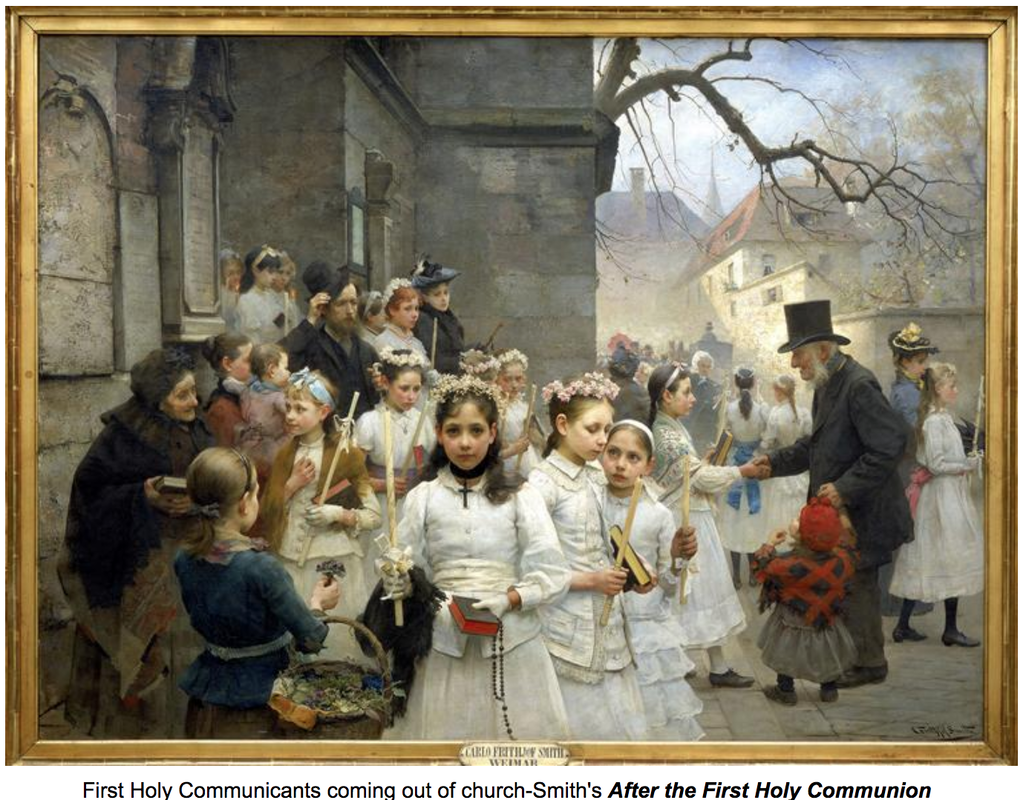
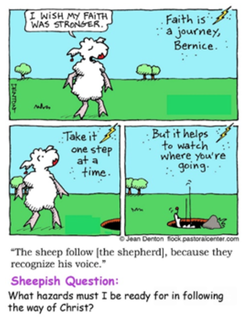
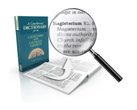
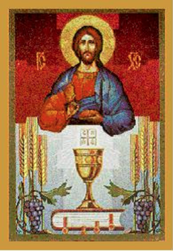

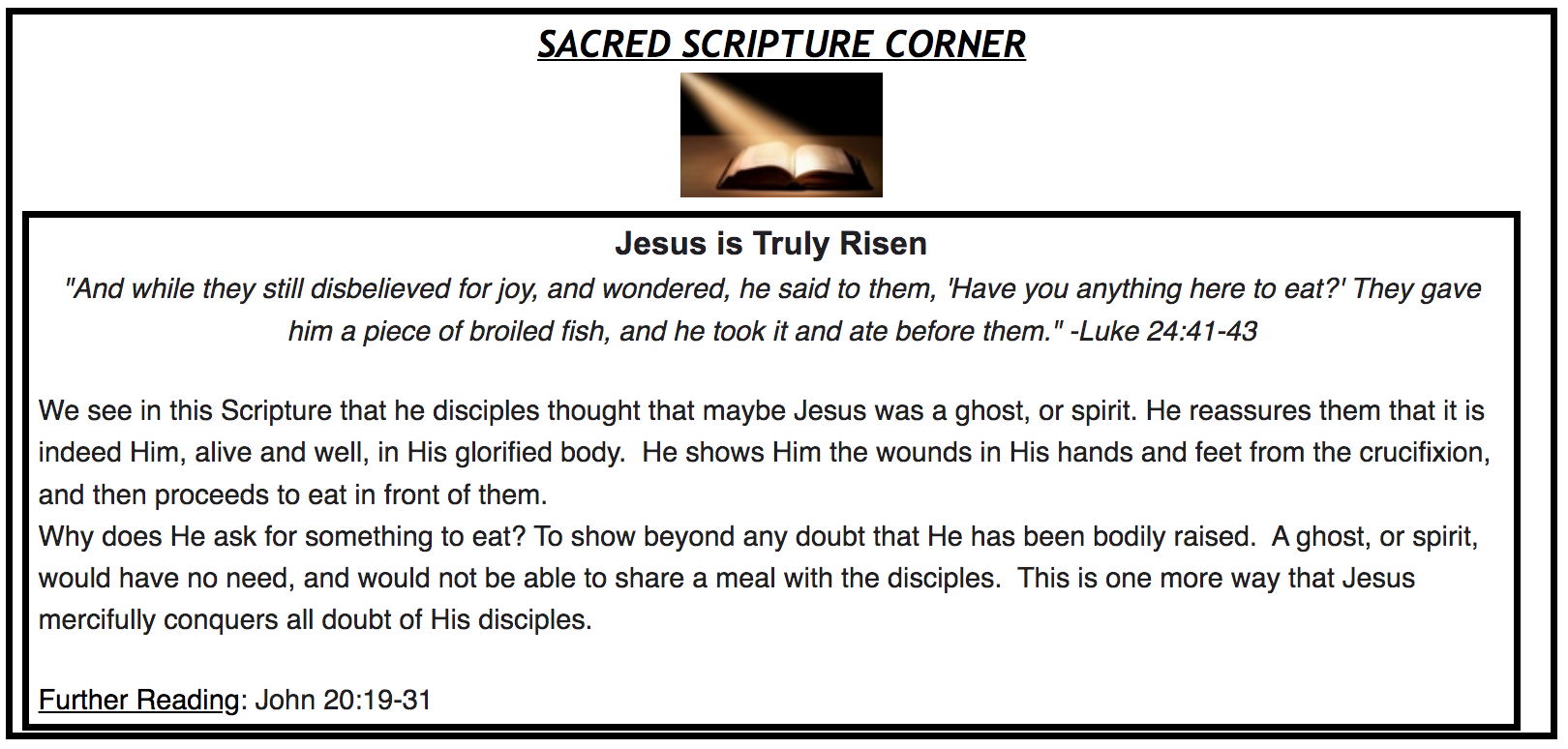
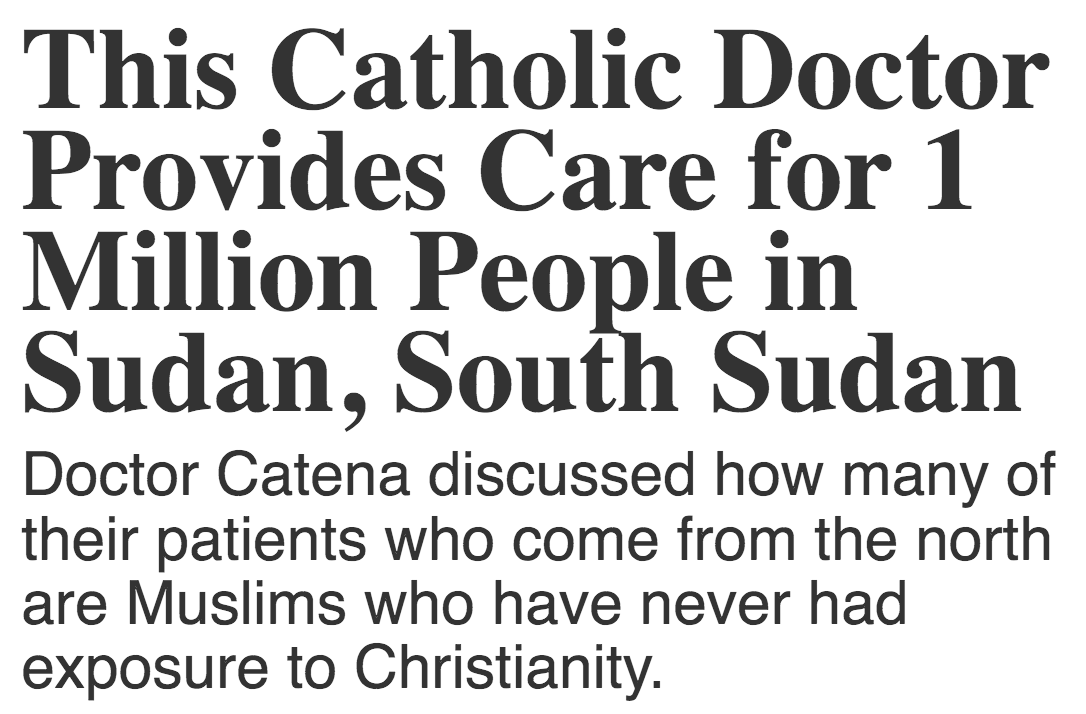
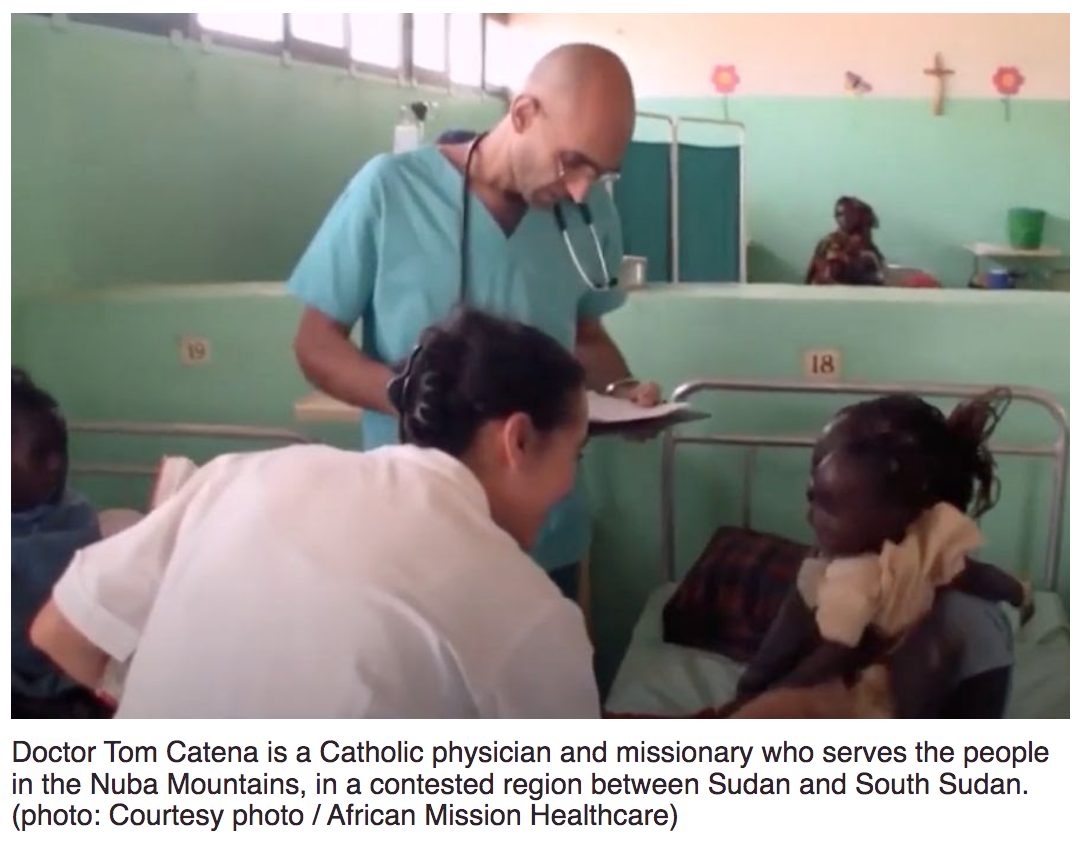



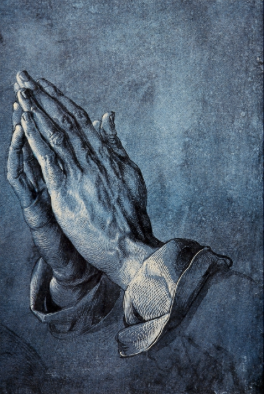
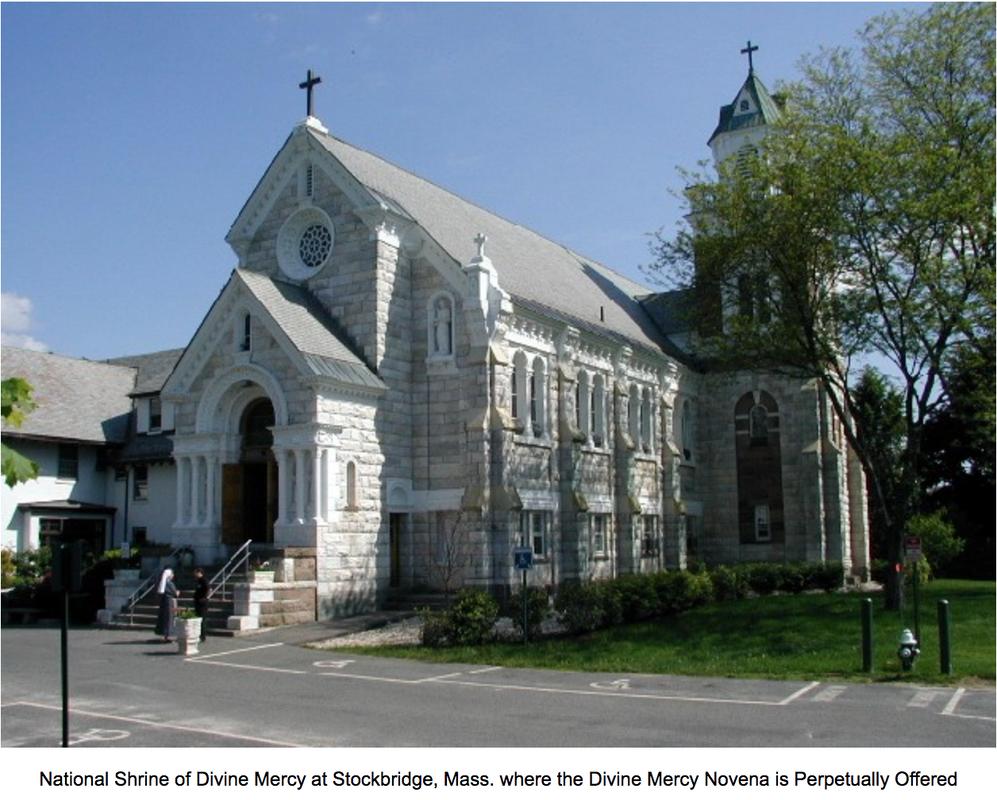
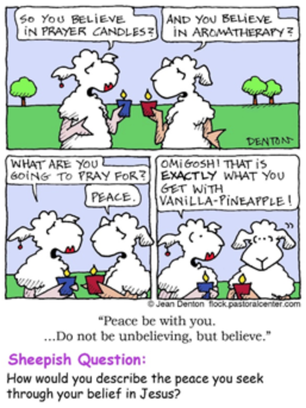

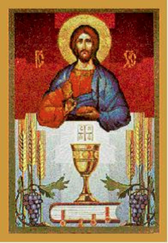
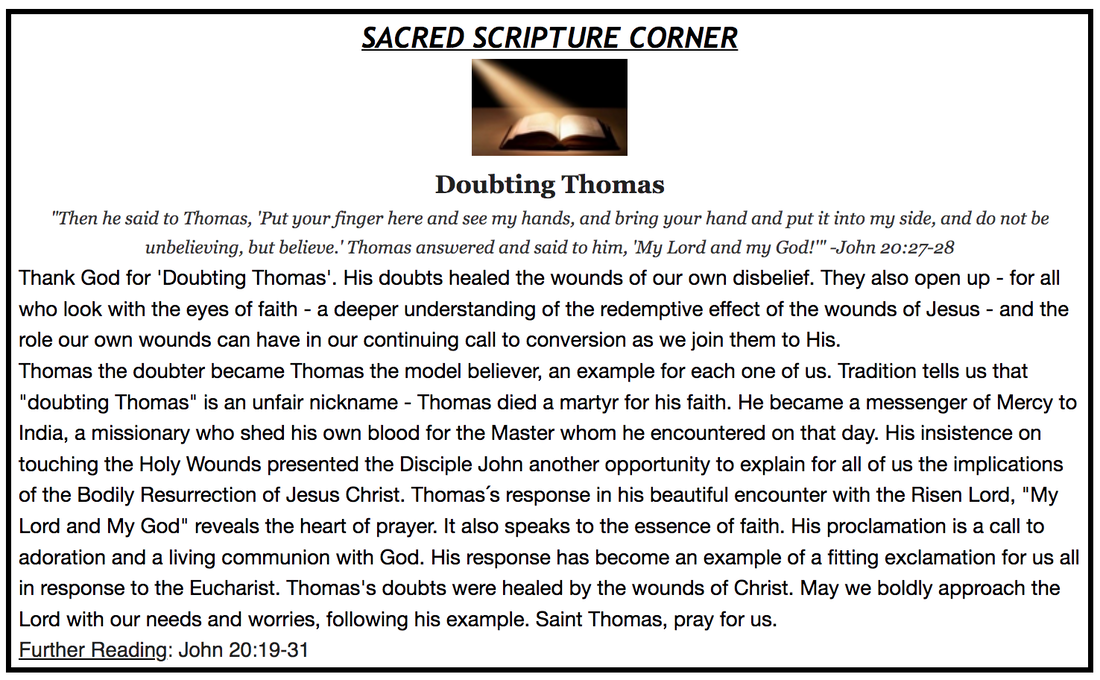
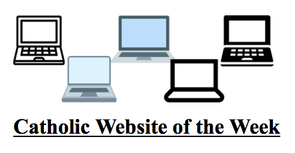

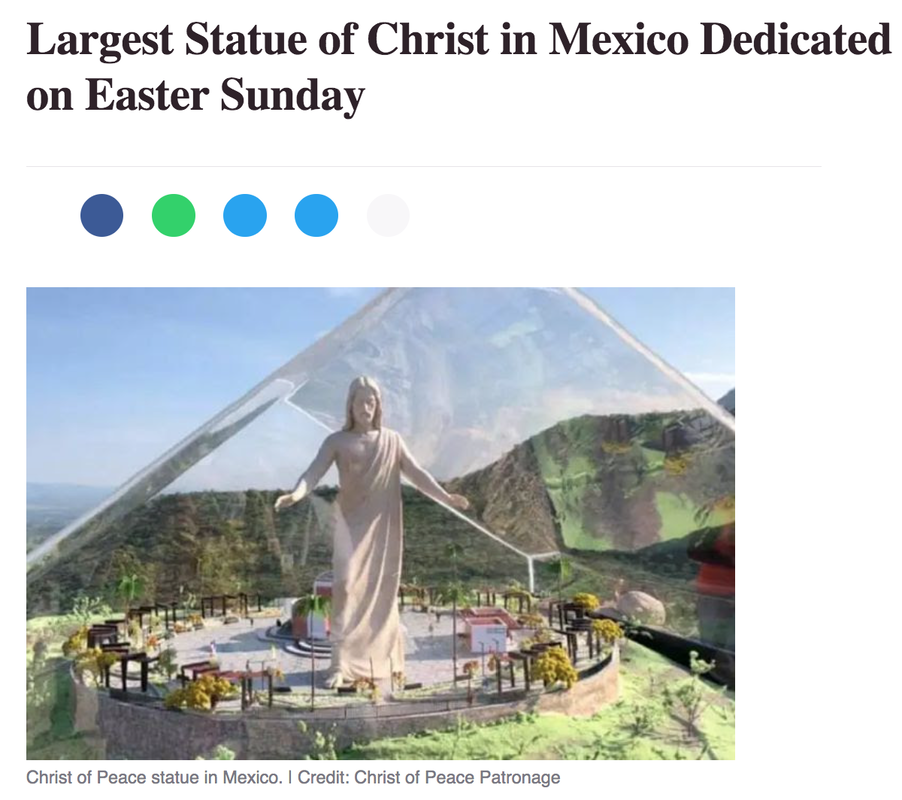
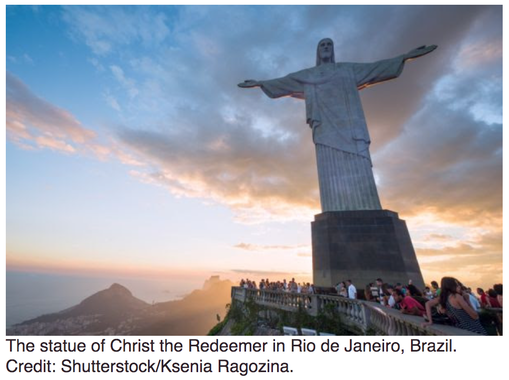

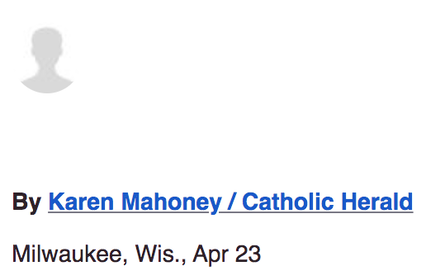
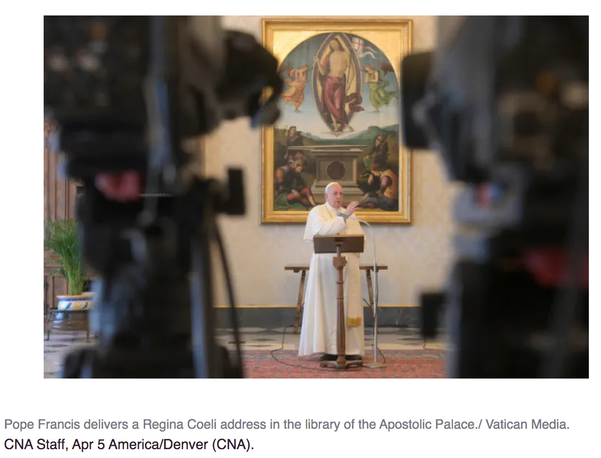


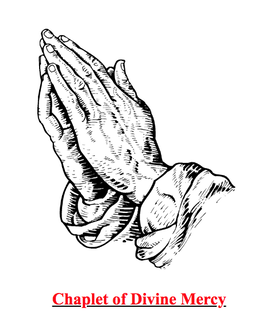
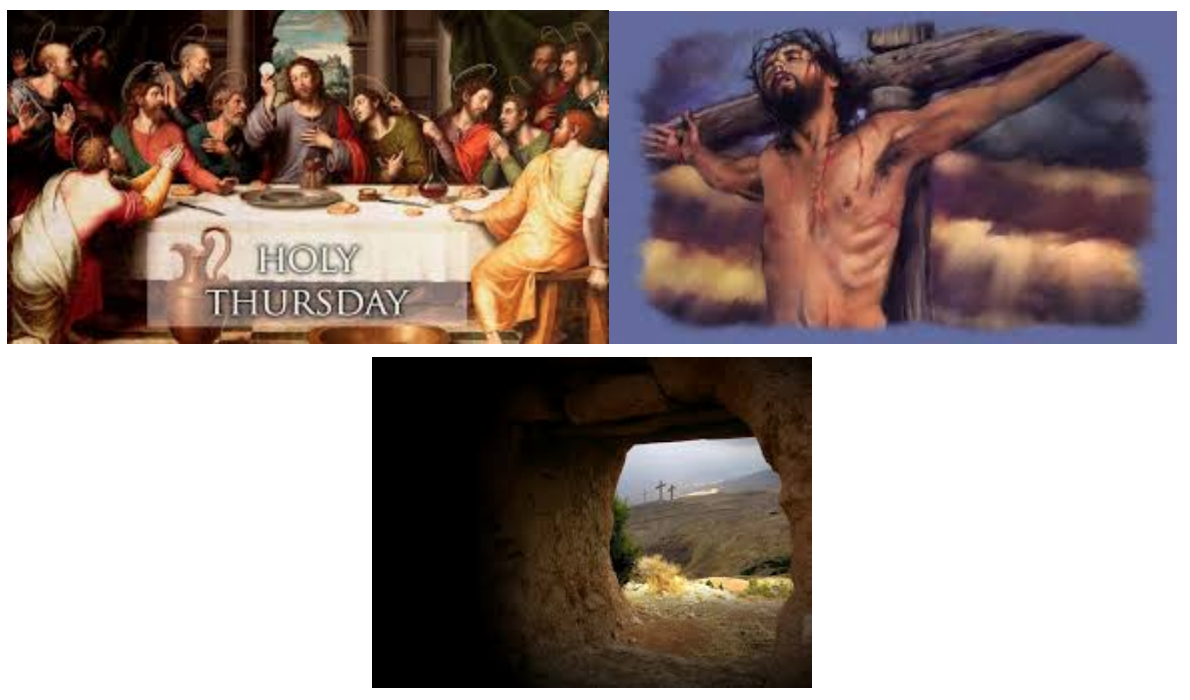
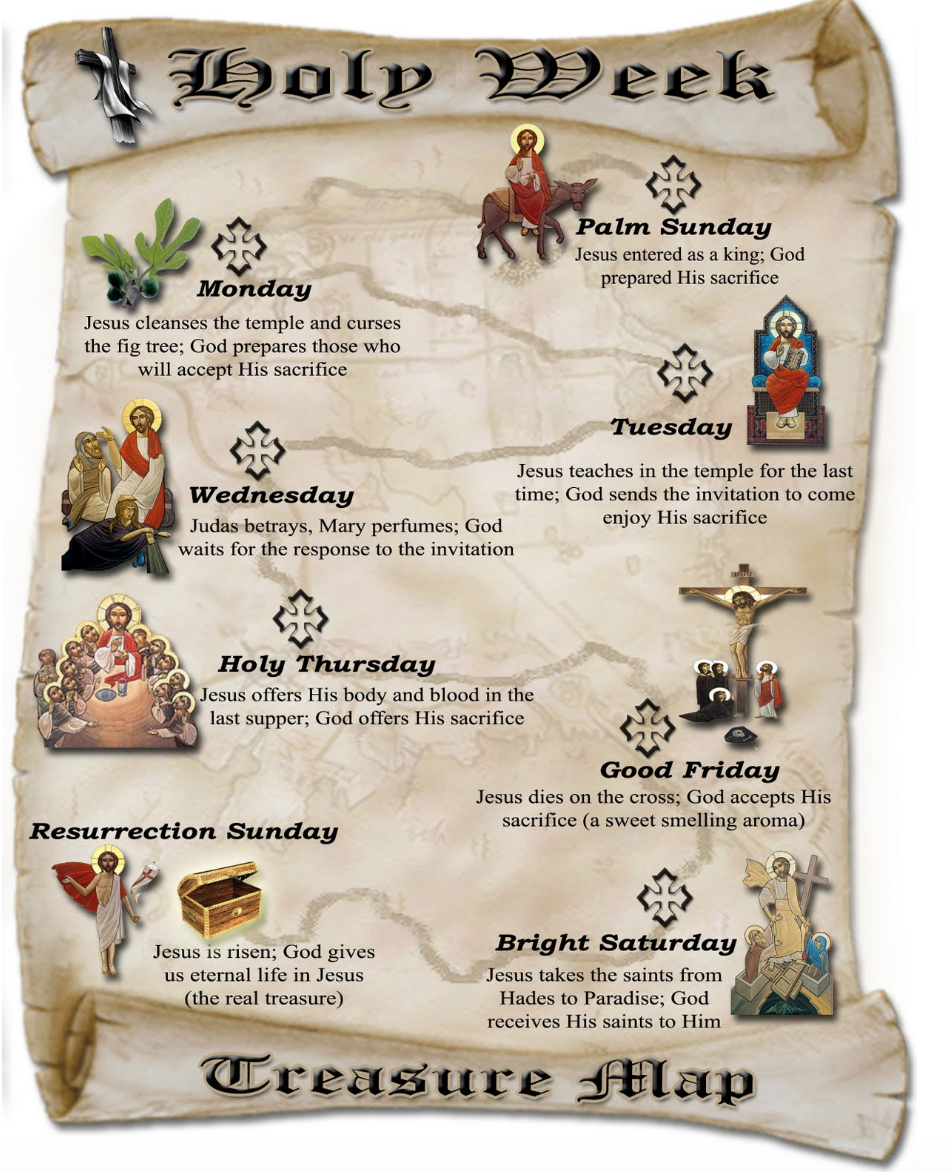
 RSS Feed
RSS Feed
